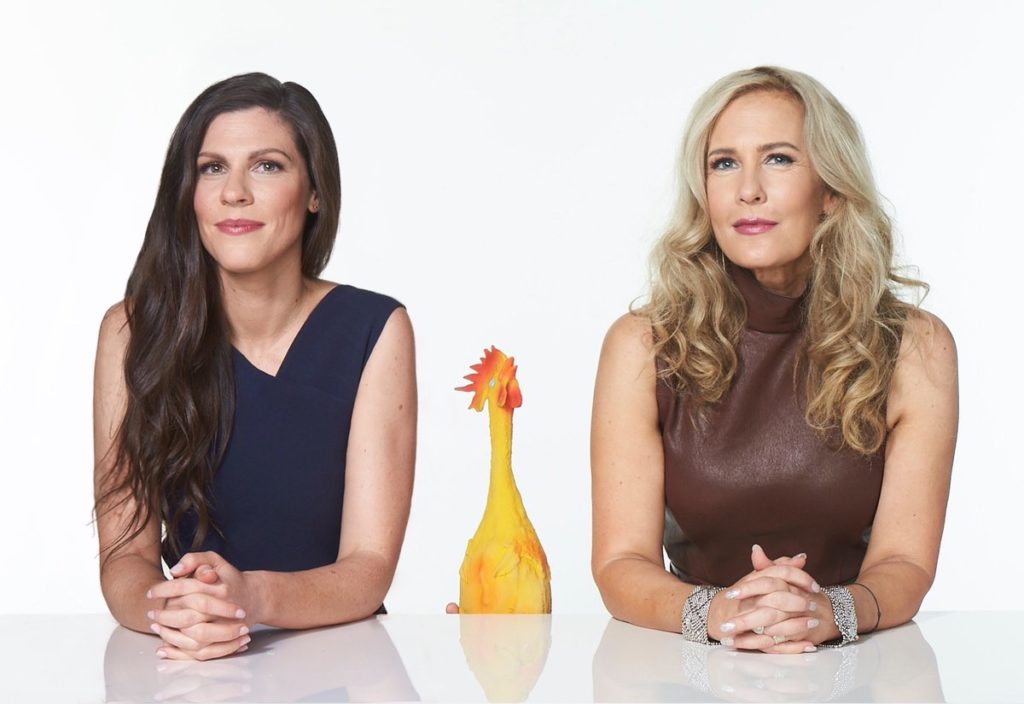
By Yvonne Milosevic
How many times did you laugh yesterday? Unfortunately, there’s a high chance the answer is either a little bit or not at all. That’s because, by age 23, our day-to-day experience with humor goes off a cliff. And we don’t recover it until we’re well into our Golden Years. That’s according to the new book “Humor, Seriously” by Jennifer Aaker and Naomi Bagdonas of Stanford GSB. As we become professionals, we start to believe that humor at work is immature, inappropriate, or a sign that you’re not taking your job seriously. But nothing could be further from the truth.
“The book that we wanted to write was really one around hopefully transforming business—that humor is a superpower that’s completely under-leveraged and underappreciated at work,” Bagdonas says on The Next Big Idea Club podcast. She and Aaker teach a course together at Stanford called “Humor: Serious Business,” which shows aspiring executives and entrepreneurs why humor is one of the most significant competitive advantages in business and life.

Most importantly, humor at work strengthens our social bonds and provides numerous health benefits. Feeling at ease in our work environment reduces tension and protects us from stress. We’re also more willing to express new ideas and take risks that lead to creative solutions and increase productivity.
“There is a significant ROI on humor…from a business perspective,” Aaker explains. For example, studies have found that employees consider leaders with a sense of humor—even a dorky one—27% more motivating and inspiring. Plus, their employees are 15% more engaged, and their teams are twice as creative.
‘Dad Joke’ for the Win
If those other incentives weren’t enough, the fact that using humor at work can also make you wealthier might sway you. “Our favorite study showed that in negotiations, if you simply add a light-hearted line to the end of a sales pitch, like ‘this is my final offer, and I’ll throw in my pet frog’…consumers would pay 18% more and say they enjoy the negotiation much more,” says Aaker.
As that line proves, it’s not about being a skilled comedian. Instead, it’s about bringing more levity to your work life. “Levity is a mindset. It’s an inherent state of receptiveness to—and seeking of—joy,” Bagdonas explains.

“If you’re navigating life on the precipice of a smile, looking for reasons to be delighted rather than disappointed, it’s going to impact how you perceive the world and how other people perceive and interact with you,” she adds.
How to Safely Inject Humor at Work
Fears of using humor at work inappropriately are valid. Nobody wants to be like Michael Scott of The Office. Aaker shares this tip with the Wall Street Journal to help anyone on the fence about making a joke at work.
“Ask yourself: If you remove the funny part of what you’re about to share, is it still appropriate to discuss now, with this audience? If yes, go ahead,” she counsels. But, she adds, if you need to explain that whatever you’ve said is “just a joke,” you need to rethink what you’re sharing. In a nutshell, it’s about reading the room and keeping it PG-13 at the office.
Also, you never want to punch down. As you rise in the ranks, your field of humor options narrows, say Aaker and Bagdonas. For example, self-deprecation is less effective for lower-level team members, but it becomes a superpower for high-level managers.
Everyone loves a boss who doesn’t take themselves too seriously and can still poke fun of themselves. In fact, “talks like a regular person” is about the best compliment you can pay to a higher-status individual.

Are You a Sweetheart or a Sniper?
How would you describe your humor style? Bagdonas and Aaker have devised a humor typology quiz that teases apart “individual differences in both what people tend to joke about, and how people most naturally deliver their humor: content and delivery.” It takes only three minutes to complete, and learning which of the four types fits you—Sniper, Sweetheart, Magnet, Stand-Up—is eye-opening.
The authors want us all to know that the goal here is not being funny and cracking jokes. Instead, they say it’s about bringing more levity into your everyday life and being more generous with your laughter. And there’s one final consolation for anyone who thinks they weren’t born with a funny bone.
That notion that you either have or don’t have a sense of humor is a myth, say Aaker and Bagdonas. “In fact, it’s a muscle that we can work,’ they explain. ‘It’s about naming truths in our lives and giving a window into our humanity.”


